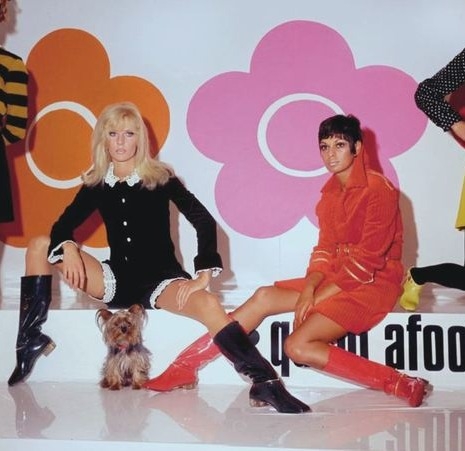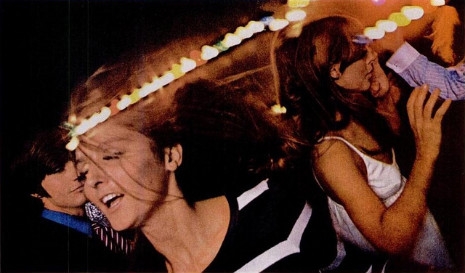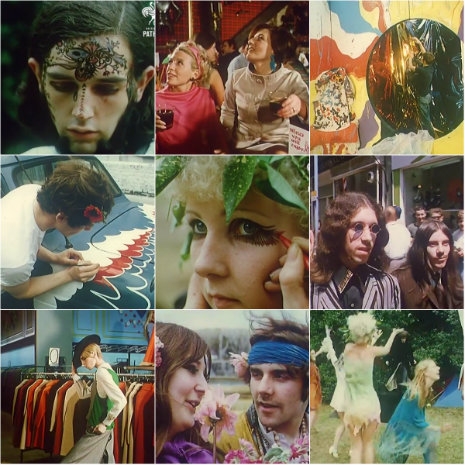
Another week brings further glories from the vaults of British Pathé. “Swinging Britain,” a finished eight-and-a-half-minute report on the goings-on down at Carnaby Street and elsewhere on the isle, presents the establishment’s benign take on fashion-obsessed youth of the day. The video shows us London (and Manchester and Newcastle, too), features several (apparently) noted figures from the worlds of fashion, art, and music, and generally presents a wow-gee-whiz attitude as to the fervent artistic activities of the Swinging Generation.
Mary Quant can be glimpsed briefly, and you’ll also see a “Happening” staged by one Keith Albarn (you guessed it, father of Damon), DJs Simon Dee and David Symonds, and a groovy young artist named Paul Whitehead who paints his compact automobile swirly colors (three years later, he’d be responsible for the cover art of the album Trespass by Genesis). Dee, of course, is practically synecdoche for Carnaby Street of the era, being the purported inspiration for the shagadelic Austin Powers.
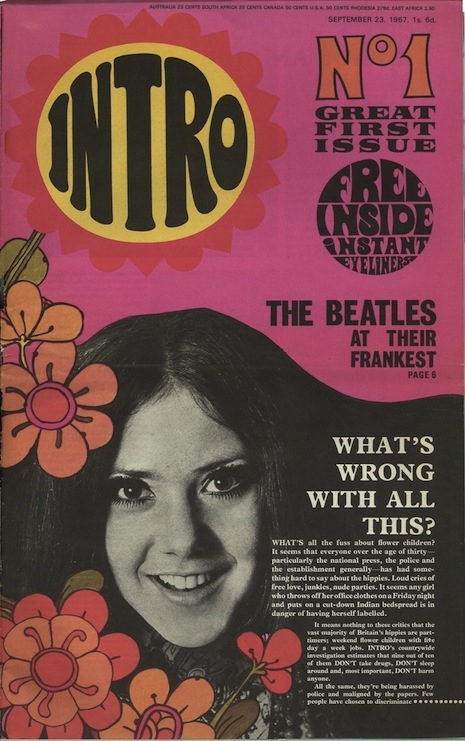
The group serving as the emblem of the new generation are the folks behind the new psychedelia-tinged Intro Magazine, in which “youth talks to youth in its own lingo”; it boasted the talents of well-known fashion illustrator Antonio Lopez. In a loose “narrative,” the news piece basically cuts back and forth between footage of young people at play (whether in a park in the daytime or a “speakeasy” at night) and the industrious young editors of Intro. One of the best things in the video is a brief discussion of “paper dresses.” We see a young woman in a park wearing one with a striking b/w photo of an eye over her midsection. She peels that off and begins to sunbathe in the bikini she had been wearing underneath. When a young fellow tosses her paper dress into the garbage, she shrugs and whips out a different paper dress, only this one has the youthful visage of Bob Dylan on it! Totally priceless.
Speaking of garbage, the voiceover explicitly praises the new generation for being so good about picking up litter, which may remind some viewers of “The Gold Violin,” from the 2nd season of Mad Men, which featured a pointed scene of the middle-class, suburban Drapers heedlessly leaving the remnants of their picnic all over the park in which they had been spending the previous afternoon. Maybe series creator Matt Weiner had a point, there. The whole tone of the documentary is one of indulgent compassion, as one might have for some harmless alien race from another planet.
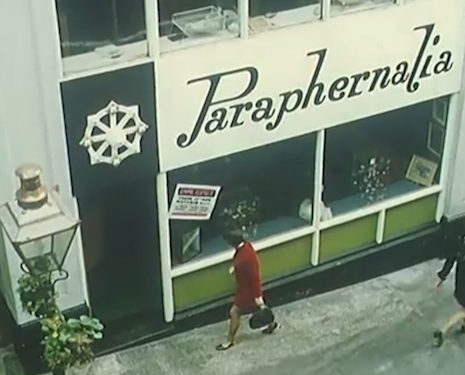
There is a band identified as the Intro Group (somehow affiliated with the magazine) as well as one called the “117 Group,” and we hear a bit of their music, I think. Those names mean anything to anyone?
via { feuilleton }






